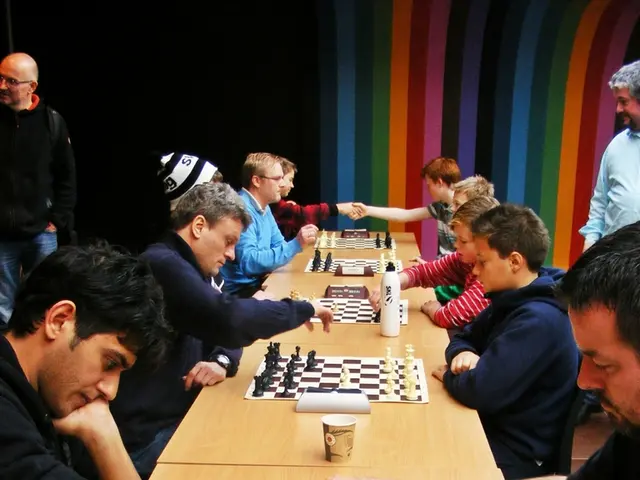Shift in class schedules for K-3 students potentially comes to an end.
The Philippines is facing a significant issue in its education system - a severe classroom shortage. According to recent estimates, the country is currently lacking around 165,000 classrooms, a situation that has forced many schools, particularly those catering to Kindergarten to Grade 3 students, to implement double or triple shifting schedules[1]. This, in turn, limits learning time and negatively impacts the quality of education for young students[2].
To tackle this pressing issue, Senate Bill 121, also known as the Classroom-Building Acceleration Program Act, has been proposed in the Philippine Senate[3]. This bill aims to authorize local government units (LGUs) and private entities to construct classrooms, with funding support from the national government[3][4]. The bill is designed to remove bottlenecks in classroom construction and accelerate building efforts through collaboration between the Department of Education (DepEd), LGUs, and the private sector[2][3].
The proposal is backed by Sen. Sherwin Gatchalian, an Edcom 2 commissioner, who cites his experience as Valenzuela City mayor, where "counterparting" programs enabled simultaneous construction by the National Government, LGUs, and private organizations[5]. Sen. Bam Aquino, who chairs the Senate Basic Education Committee and co-chairs the Second Congressional Commission on Education (Edcom 2), is also pushing for Senate Bill 121[3]. Aquino claims that children struggle to learn in overcrowded, dilapidated spaces[6].
The Edcom 2 commission has recommended ending shifting class schedules for Kindergarten to Grade 3 students, with the aim of improving the learning conditions for these young pupils[7]. The recommendation follows the Senate Basic Education Committee's first hearing in the 20th Congress, which discussed the nationwide classroom shortage[8].
The DepEd has been urged to involve LGUs and the private sector in accelerating and reducing the cost of classroom construction[9]. Edcom 2 co-chair Sen. Bam Aquino states that the classroom shortage figures do not include classrooms in poor condition, overcrowded rooms, or those built in the 1960s that are now condemned or used as evacuation centers[10].
Senate Bill 121 is currently under legislative discussion, with Senate hearings held in August 2025 aimed at tackling classroom shortages and facilitating legislative approval[4][5]. The bill is seen as a key step toward resolving persistent classroom deficits that, according to Aquino, could outlast multiple presidential terms if unaddressed[2].
References: 1. Philippine Star 2. Rappler 3. Inquirer.net 4. Manila Bulletin 5. GMA News 6. ABS-CBN News 7. Philippine Daily Inquirer 8. CNN Philippines 9. Manila Standard 10. Philippine Star
- The proposed Senate Bill 121, also known as the Classroom-Building Acceleration Program Act, suggests that local government units (LGUs) and private entities, with funding support from the national government, construct classrooms to alleviate the classroom shortage in the Philippines.
- Sen. Bam Aquino, co-chair of the Second Congressional Commission on Education (Edcom 2), strongly advocates for Senate Bill 121, stating that the classroom shortage, including those in poor condition, overcrowded rooms, or those built in the 1960s, could persist across multiple presidential terms if unaddressed.








